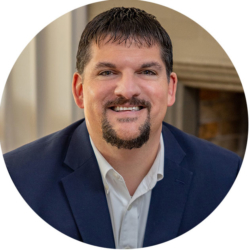How to Achieve Financial Agility

What is financial agility? Well, it’s a term I made up, but it seems descriptive enough to be easily understood. Financial Agility is the ability to adapt to changes to your financial future, as well as to overcome any challenges along the way. Your “agility score” is tied to one simple metric: your fixed expenses. If we look at the costs you face every month compared to your total income, we will have our starting place.
How to improve financial agility
There are numerous ways to increase your agility, but not all of them are easy.
1. Reduce fixed costs
First, you need to reduce your fixed costs. Things like HBO subscriptions, or nail polish of the month club are the low hanging fruit you should initially look at (especially after that abysmal ending to “Game of Thrones”—who needs HBO now?). A quick look at your bank account, accompanied by the question “Do I really need this?” will help with trimming the fat.
2. Increase your income
Another way to increase your financial agility is to increase your income; this could be taking a second job or getting a promotion and/or a raise. We all have the tendency to reward ourselves materially—new gadgets, expensive dinners, spa days— with any income increases. However, the key here is to keep your spending the same while increasing your income.
3. Review existing debt
The last strategy for improving your financial agility requires a little bit of financial engineering (what do you expect, I am a Certified Financial Planner®). This approach works, despite going against conventional wisdom. You will need to review all your existing debt. These are things like student loans, credit cards, personal loans, mortgages, and auto loans. The traditional approach is to pay extra on the highest interest rate debt first, then move on to the next highest. However, a snowball approach—the one I’m suggesting here—focuses on paying off the smallest debt first.
Paying off the smallest debt first
By paying off the smallest debt first (paying more than the minimum payment), you are focusing on the fixed monthly payments instead of the cost of borrowing (that just means interest rates). Paying off the smallest debt generally tends to be more digestible than putting “extra” on the higher debts. We all know and understand that any debt comes with a minimum monthly payment. Adding all those payments together brings us to the total monthly debt costs, with one minimum payment off the books we allow ourselves to have more money at the end of the month. Further, the snowball approach then has you put all that extra money on the next smallest debt and so on.
Those with high debt payments tend to fall into a never-ending cycle. The snowball approach can help you get out of this cycle. When those with too little money face an emergency (such as auto repairs, medical bills, or a broken appliance), their inability to pay for those expenses means those expenses will be added to the debt pile. Getting out of this vicious cycle could mean a world of difference for you over the long run.
This same approach works in other ways as well. Looking to buy a new vehicle? Putting a large down payment might lower your monthly costs, but what if you used that down payment to pay off credit cards or other debt? Getting rid of other debts might lower your total monthly debt costs more than putting a large down payment towards a new vehicle.
You can achieve financial agility
Financial agility is only one area to consider when evaluating your overall financial health. The above-referenced strategies can benefit your financial health if you continue to work hard and stay in control of your spending. All too often, we fall into complacency and decide we “deserve a reward” which really brings us right back to where we started. For the best results, these techniques need to be paired with behavior changes, not the least of which is spending less. You’ll thank yourself for that.
Zack is a CERTIFIED FINANCIAL PLANNER™ professional, Accredited Investment Fiduciary, Accredited Wealth Management Advisor, Chartered Retirement Planning Counselor, and Retirement Management Advisor.
As Director of Financial Planning at Berkshire Money Management, he partners with recent retirees and people nearing retirement to create actionable plans for achieving their financial goals. He is especially interested in tax planning – he hates taxes and wants to help you pay less of them.








